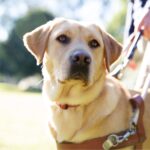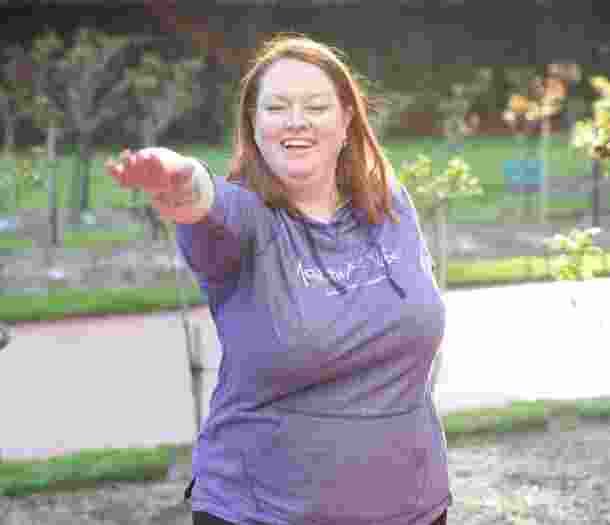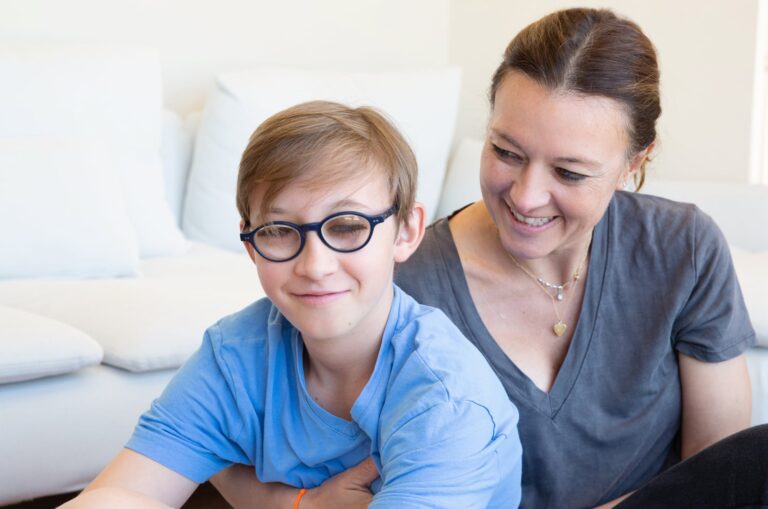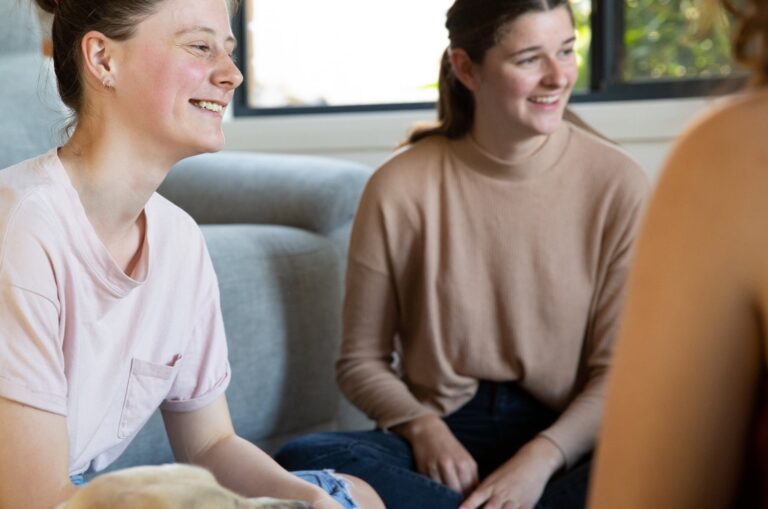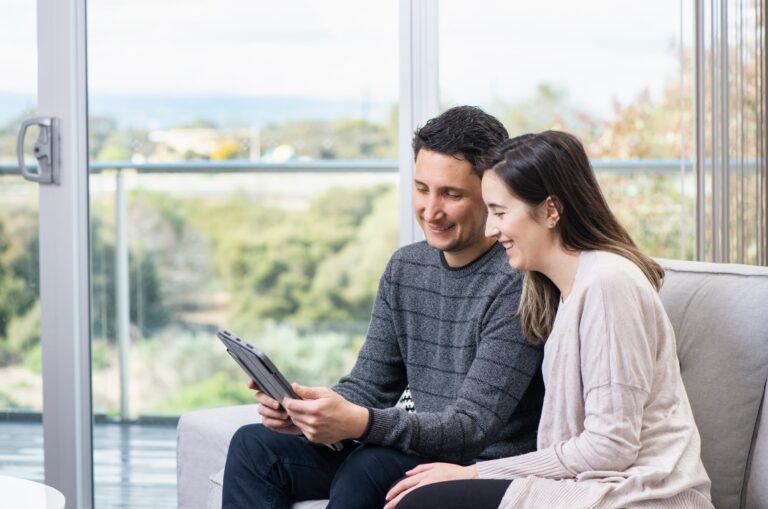What are leisure and lifestyle services?
Explore your community and connect with new people.
Everyone connects in different ways. One thing’s for sure, though: we can all enjoy the experience of meeting new people who have similar stories or experiences to our own.
At Guide Dogs, we can support you to access social and lifestyle activities—or classes and experiences in the community—based on your interests, what you’re comfortable with, and where you live.
Our peer support service involves:
- Working with you to develop strategies so you can independently access activities in the community.
- Identifying and recommending any assistive technology to support you in getting the most out of your favourite activities.
- Introducing you to Guide Dogs’ social and activity groups.
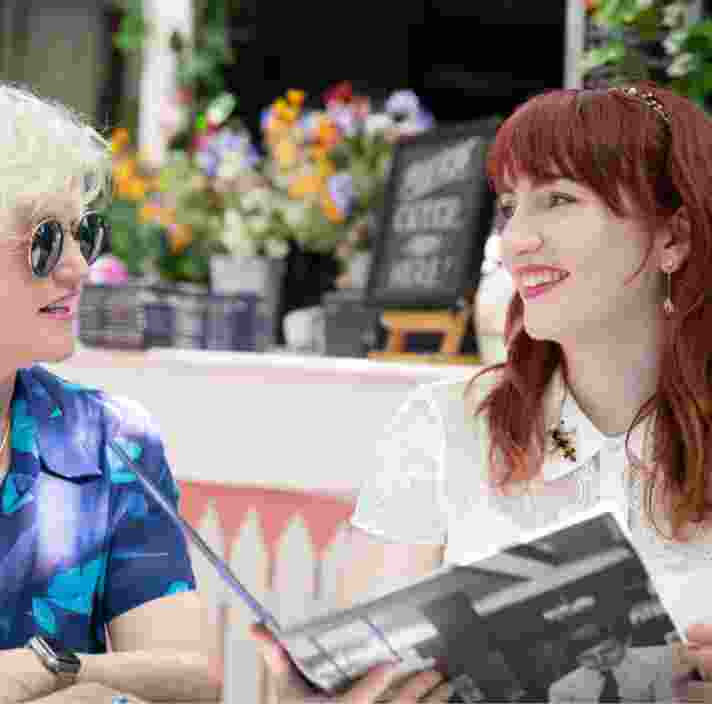
What types of programs and activities can I access?
You can access a huge range of activities depending on your interests. From art and culture to sport and recreation, you’ll find something that’s perfect for you.
Our list of activities and peer groups—which we call the Guide Dogs community and peer group directory—has been developed in collaboration with people living with low vision and/or blindness.
Some examples of the types of groups and activities you can find in the directory include:
- Sports groups for players of all skill levels and abilities to get involved with futsal (indoor soccer), lawn bowls, athletics, golf, cycling, fishing, goal ball, table tennis, and much more.
- Social opportunities to connect and catch up with regular coffee clubs, social lunch groups, walking groups, phone support groups, and more.
- Cultural groups and activities like choir groups, peer support for artists, and more.
- Skills development groups, supporting you to learn new techniques with adaptive technologies, build skills in braille, and more.
For the full list of programs and activities, check out the Guide Dogs community and peer group directory or get in contact with our team.
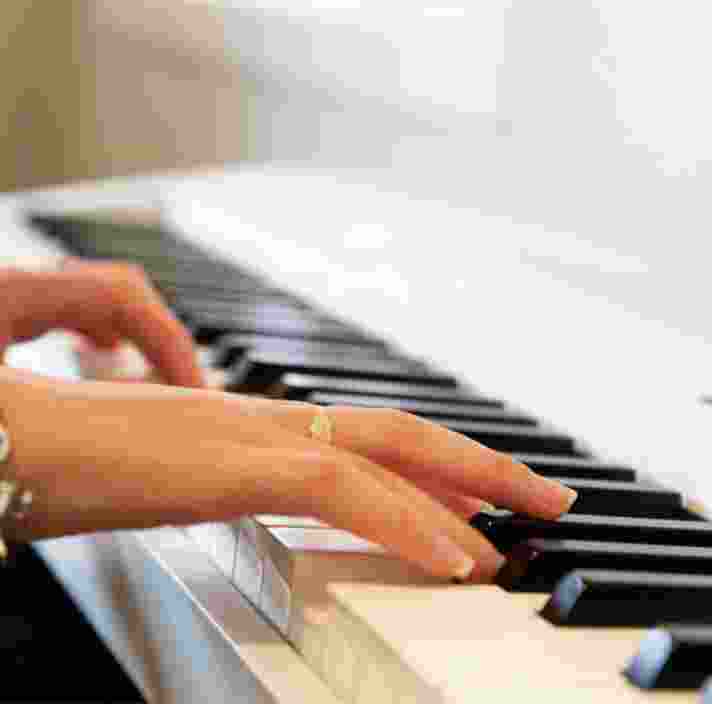
National Directory
National Community and Peer Groups
AFA is a national, non-profit organisation run by volunteers who have albinism or
been personally touched by albinism in some way. The AFA’s key purpose is to
provide support, education and fellowship to those with albinism, parents of children with albinism as well as their families and friends.
Location: National
When: Various – visit website or Facebook page for further information
Phone: 1300 221 619
Email: membership@albinismaustralia.org
Website: albinismaustralia.org
Facebook: facebook.com/groups/albinismaustralia
We are a group of families exploring ways to bring visual art to life with our young
children who are blind or have low vision. We always love to hear from other families on this quest!
Location: Online
When: Various – visit website for further information
Contact: Via contact form on website
Website: art-play.com.au
Australian Blind Football is an initiative of Blind Sports Australia and is working with Football Federation Australia (FFA) to be the recognised national pathway by for people who are blind or vision impaired to play football for Australia.
There are two versions of the game of blind football. Blind football (B1 or 5 a side
football) is played by athletes who are totally blind. Vision impaired futsal (partially
sighted futsal) is played by athletes who are vision impaired.
Location: Check under state entries for State based teams.
Email: football@blindsportsaustralia.com.au
Website: ausblindfootball.com.au
Blind Golf Australia was formed to promote the game of golf amongst blind and
vision impaired people and to co-ordinate blind golf between the states of Australia.
Contact: David
Phone: 0414 514 575
Email: secbga@gmail.com
Website: blindgolf.com.au
We represent and advocate for Deafblind people around the country. We are
committed to diversity, inclusiveness, self-determination and advocacy. We work to improve supports and services and to empower Deafblind people to be self-determining and self-advocating.
Phone: 0427 006 890
Email: info@deafblind.org.au
Website: deafblind.org.au
Facebook: Deafblind Australia
DGHA is an independent non-profit association of dog guide handlers
and is not affiliated with any dog guide organisation. Our mission is to foster, represent, promote, enhance and protect the interests of Australians who are dog guide handlers. Our key objectives are to draw on the experiences and varied knowledge of our members, to provide peer support, systemic advocacy and information for Dog Guide Handlers throughout Australia. We hold a biennial conference and regular members teleconferences through the year and welcome members to join the DGHA community on Facebook and follow the DGHA Facebook page.
Location: Online
Contact: Greg
Phone: 0408 396 333
Email: dgha@dgha.org.au
Website: dgha.org.au
Facebook: DogGuideHandlersAustralia
Request support
Take the first step towards greater independence.
Who will I meet along the way?
Some of the people you may encounter include:
Regardless of your interests and the groups or activities you join, you’ll likely meet some new people: it’s all about community and connection!
-
1. Community Support Liaison
This person plays an important role in bridging the gap between people with low vision or blindness, their families, and community groups or resources. They can support you to discover services, resources, activities and programs that fit with your interests, and support you to connect with people in your community. -
2. People with similar experiences and interests to you
By participating in community programs and support groups, you will have opportunities to meet people with similar life experiences to you. It’s a great way to share stories, build connections, grow your understanding, get support, and make new friends. -
3. Passionate volunteers
Many community groups and activities are run with the help of volunteers—whether Guide Dogs volunteers or simply generous people from the community. We’re always thankful for volunteers and the vital role they play in providing valuable support.
Find other services to support your independence
In addition to connecting with community, there are many other ways to get support and grow your confidence and independence.
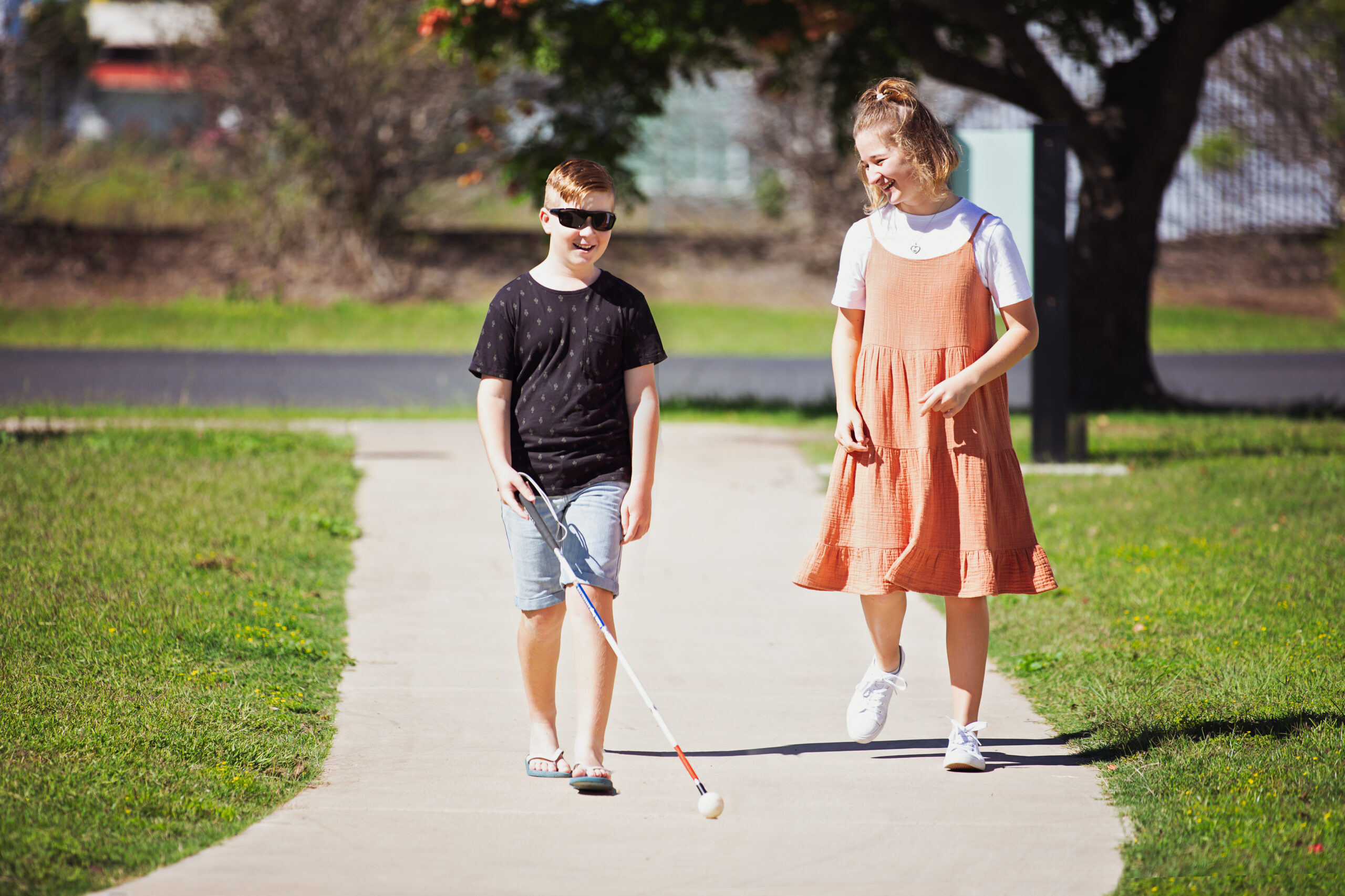
-
Psychology and counselling
Psychology and counselling: Experiencing a change in vision can mean adjusting to new ways of understanding and navigating the world. It can be a challenge, but we’re here to support you through every step.
-
Assistive Technology Training
Assistive Technology Training: Get support to use technology and devices that can make life easier by accessing information, finding your way around the community, connecting with friends and family, or enjoying your favourite hobbies.
-
Occupational Therapy
Occupational Therapy: Learn the practical skills you’d like to master in day-to-day life. It could be making dinner at home, choosing your clothes, getting active in the garden, or anything else that’s an important part of your daily routine.
Ready to continue?
Seems like you have filled this form earlier. Let’s pick up where you left off.
